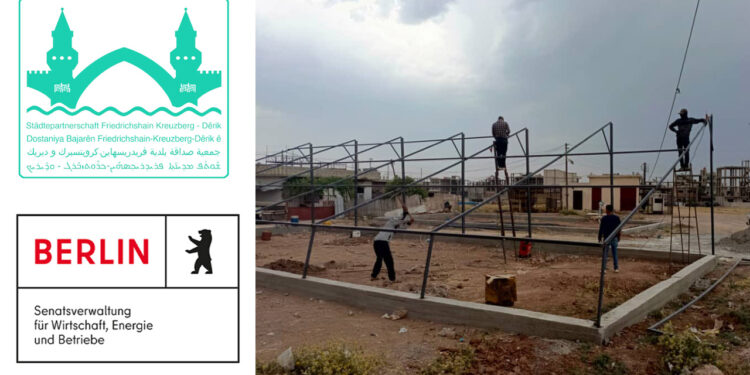A solar-powered water well has been constructed in Dêrik, a town governed by the Autonomous Administration North and East Syria (AANES), marking a significant advancement in sustainable infrastructure in the Kurdish-led region.
The project, funded by Germany’s State Office for Development (LEZ) and implemented in collaboration with a town twinning partnership between Berlin’s Friedrichshain-Kreuzberg and North and East Syria’s Dêrik, aims to enhance access to clean water for approximately 5,000 residents.
Construction began in early June and the well is equipped with a photovoltaic system to power its water pump, demonstrating a commitment to renewable energy solutions. An engineer from the local water authority oversaw the project with support from Make Rojava Green Again (MRGA), a group which coordinated activities and ensured community engagement.
Initial delays were caused by heavy rainfall and logistical challenges in transferring funds to the region, exacerbated by limited access to financial services. However, with steadfast support from LEZ and proactive efforts by local partners, these obstacles were overcome, enabling the project’s successful completion.
The construction of the solar-powered water well in Dêrik contrasts sharply with ongoing challenges faced by the Kurdish-led autonomous region in Syria. According to documentation from the Rojava Information Centre (RIC), Turkey has systematically targeted electricity infrastructure through regular airstrikes. These attacks, coupled with existing embargoes, severely disrupt maintenance efforts and pose long-term obstacles to infrastructure development.
Such challenges highlight the importance of initiatives promoting self-sufficiency and renewable energy sources in Kurdish-led areas. Projects supported by international solidarity groups not only address immediate needs but also underscore resilience and sustainability in the face of adversity.

